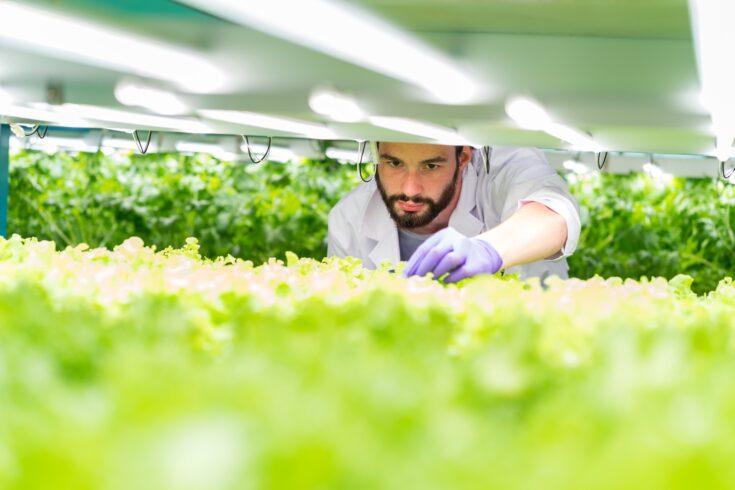Innovate UK and the Biotechnology and Biological Sciences Research Council (BBSRC) have announced some of the impacts and successes from their TFP challenge.
The new brochure looks at the full range of innovations and game-changing solutions Innovate UK has funded since the inception of the challenge.
The purpose of the brochure
The brochure looks at the background of the five-year TFP challenge and the outcomes of its £68 million funding spend across:
- traditional agriculture
- new future food production systems
- international partnerships and investor partnerships among other support
The brochure brings together a look at the sectors and the new technology available, as well as the regional spread of funding and the different types of organisation supported.
It also takes a more in depth look at the innovations and their potential for the future, showcasing how the impact of the challenge will continue into the agriculture sector for the long-term.
Key achievements
The breadth of engagement, funding and overall success of the TFP challenge is showcased by some of the impressive results achieved throughout the programme since its inception in 2019.
A total of 92 projects have benefited from TFP funding, which have included 316 different organisations engaged through the consortia developed in project applications.
Alongside 218 businesses, there have been 72 research institutions, 23 technology firms and three public sector and charity organisations engaged with the TFP challenge.
The spread of these organisations has also demonstrated the diverse agriculture sector across the UK, with 56 project partners based in Scotland, 10 in Wales and six in Northern Ireland.
The remaining organisations cover the full length and breadth of England.
Net zero emissions by 2040
These projects have focused on both traditional agriculture, including livestock, broadacre and horticulture, through to new food production systems, such as novel proteins and vertical farming.
The projects aim to produce food in more efficient ways that will put the sector on a trajectory to realise net zero emissions by 2040.
The portfolio of projects are developing novel solutions to food production challenges.
They do this through a variety of cutting-edge technologies from artificial intelligence, data and machine learning, robotics, automation, through to diagnostics and sensors to enable enhanced management and decision making.
Embracing new solutions
Dr Katrina Hayter, Executive Director, Healthy Living and Agriculture Domain at Innovate UK, said:
Embracing new solutions is essential in addressing the challenges facing our food production system that have been highlighted through recent shocks to our global supply chains and the impacts of climate change.
By fostering innovation, we can effectively tackle these challenges, paving the way for enhanced efficiency, sustainability, and productivity across all aspects of the food sector.
This brochure not only demonstrates how new collaborative projects are bringing forward solutions to these problems by combining the knowledge of research, technology and agriculture experts, but also the breadth of support that the TFP challenge has created.
Across different regions, sectors, technology types and project sizes, the TFP challenge has always sought to back projects that can make a difference to the net zero challenge facing the industry and futureproofing the food sector against new and changing demands.
Having a major impact
UK Research and Innovation Food Sector Champion and BBSRC Interim Executive Chair, Professor Guy Poppy, said:
There is a very real need to transform food production for both planetary and human health. The diversity of innovative projects funded in this programme, led by farmers, will have a major impact on a range of important issues such as how we achieve net-zero and how we produce sustainable and healthy food in the future.
Download the digital brochure: catalysing the transition to net zero food production

